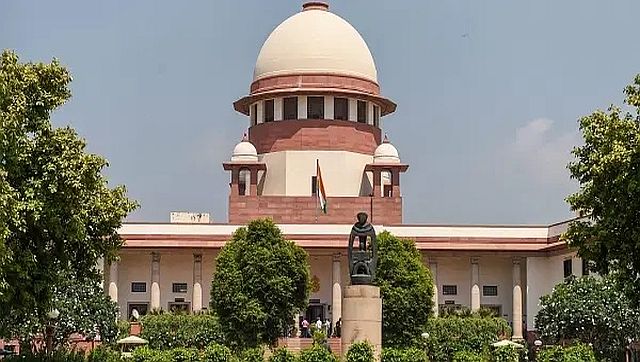The momentous verdict of the Supreme Court taking away the power of ruling governments to unilaterally choose Election Commissioners has crucial implications for India as a functioning democracy. It has in one stroke addressed disturbing questions being raised about the integrity and autonomy of the two most important watchdogs of Indian democracy – the Election Commission and the Supreme Court itself. The fact that the highest court of the land has chosen against the plea of the government to include the Leader of the Opposition and the Chief Justice along with the Prime Minister in a special committee to advise the President to appoint the Chief Election Commissioner and his two colleague Commissioners certainly enhances this country’s shining reputation as the world’s largest democracy. Indeed the landmark decision has come at a time when there has been growing despair about whether the unique experiment with democracy as envisaged by the founding fathers of the Indian republic was at all feasible any longer. There is little doubt that despite elections remaining hugely popular even more so among the poor and semi-literate they have been increasingly muddied by political manipulation both before and after the electoral contest through organised rigging and the return of large scale horse trading of elected representatives bypassing the anti-defection law. Sadly, the Election Commission has shown palpable lack of purpose in recent years to stop this corruption of the popular verdict giving the impression that it was disinclined to play the role of a vigilant watchdog. To compound the woes of Indian democracy, there has been a simultaneous perception of a diminished judiciary including the Supreme Court reluctant to tilt at the windmills of political power. It is therefore all the more significant that the five member Supreme Court member headed by Justice K M Joseph has not only intervened on such a vital matter but also in its order made a scathing indictment of powerful political interests undermining an independent Election Commission. The court noted that even after 75 years after Independence successive political dispensations which have come to power so far have made no effort to frame a law guiding the appointments to the Election Commission. “Political parties betray a special interest in not forthcoming with a law. The reasons are not far to seek… There is a crucial link between the independence of the Election Commission and the pursuit of power by parties, their consolidation and perpetuation… An insatiable quest to continue in the saddle requires a pliable Election Commission who functions as an unfair and biased overseer of the electoral process which lies at the very heart of democracy… An Election Commissioner who obliges the powers that be, perhaps even offers an assured gateway to the acquisition of power,” Justice Joseph observed. The bold stance adopted by the Supreme Court is not likely to go down well in the corridors of political power. There has already been an ugly confrontation building up between the highest judiciary and the ruling dispensation over the appointment of judges. The government has been pressing for a greater role in the appointment of judges, which has been the domain of the Supreme Court collegium or panel of senior most judges since 1993. It even passed legislation in Parliament some years ago to change the old system which the Supreme Court rejected. The conflict between the executive and the highest judiciary has deepened in recent months. The Vice President Jagdeep Dhankhar has in the past few months thrice castigated the Supreme Court for striking down legislation passed by both Houses of Parliament which he said was supreme and not the judiciary accusing the latter of “posturing from judicial platforms”. The Law Minister Kiren Rijiju has also been reported expressing his displeasure with the judiciary over the appointment of judges. It also remains to be seen whether the Supreme Court verdict, historic as it may be, will make any immediate material difference to the working of the Election Commission. The fact of the matter is that the current Chief Election Commissioner and his two colleague Commissioners appointed by the government will continue in office beyond the next Lok Sabha polls in 2024 and despite the symbolic value of the Supreme Court judgement it remains for the moment a road map for the future. Further, despite the controversy over the recent appointment of the third Election Commissioner Arun Goel which the Supreme Court described as a “breach of law”, he will continue to hold office. The government also has the option of passing new legislation in Parliament overturning the Supreme Court verdict. However this is unlikely at least before the next parliamentary polls as it would lead to a needless all out confrontation between the government and the highest judiciary. It is therefore still a long way for a proactive independent Election Commission ensuring the precious vote of every Indian citizen is truly respected. The writer is a Delhi-based political commentator. Views expressed are personal. Read all the Latest News , Trending News , Cricket News , Bollywood News , India News and Entertainment News here. Follow us on Facebook, Twitter and Instagram.
The highest court of the land has chosen to include the Leader of Opposition and CJI along with the Prime Minister in a special committee to advise the President to appoint the Chief Election Commissioner and his two colleagues. This enhances India’s shining reputation as the largest democracy
Advertisement
End of Article


)

)
)
)
)
)
)
)
)



